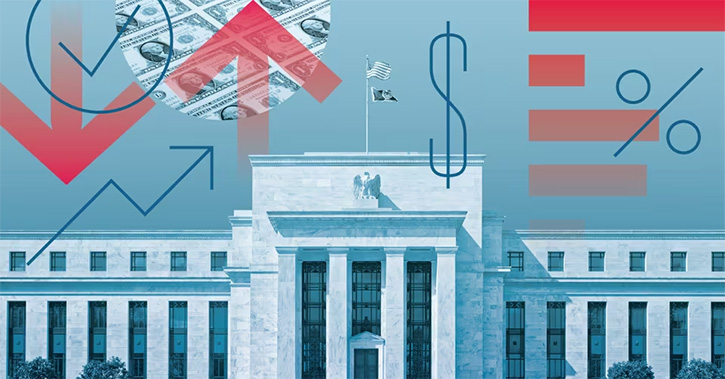Jason Stipp: I'm Jason Stipp for Morningstar. As the Greek drama is playing out and moving markets as it goes, we're checking in today with senior economist Francisco Torralba from Morningstar Investment Management for his take on the possible scenarios and what they may entail.
Francisco, thanks for joining me.
Francisco Torralba: Thank you for having me here.
Stipp: First of all, we've known for a long time that Greece has had financial troubles. But to take a step back, why are the issues flaring up again recently? Why are they in the headlines?
Torralba: The existing bailout program that Greece had with its creditors was expiring on June 30 and as we got closer to that deadline and it was apparent that there wouldn't be a deal, markets got nervous, understandably, and this is where we are today, one day after that deadline.
Stipp: Okay, and we know that that deadline was technically missed, but there are still negotiations are going on. But one thing is, although the markets have been disrupted somewhat as these negotiations have been happening, it does feel like it's different than the last time Greece was in the headlines. How would you characterize the context this time around versus the last time?
Torralba: Well, it's worse. I think it's worse. The second bailout officially expired in February, but they were able to get an extension for four months that ended in June. I think Europe now feels that they have given enough time for the two parties to reach a new agreement for the third bailout and they feel like Greece hasn't really made enough progress with the reforms that they need to make. So, I think that this time Europe has less patience or is less willing to yield to Greece's demands. So, that, I think, is the main difference. We are getting to a point where Greece has less room to get what they want.
Stipp: I know there were concerns last time around about financial shocks to the rest of the Eurozone and to the rest of the globe. Do you think those shocks are as pertinent today as this crisis is happening as they were last time?
Torralba: No, they are less likely to happen. Since last time we had a Greek crisis, European institutions and in particular, the European Central Bank, has put in place mechanisms that make contagion less likely. They have the asset purchase program. They also have put in place the EFSF and the ESM to lending institutions that would be there for other countries, should they need to borrow from them.
Stipp: Okay. There was news on Wednesday that the Greek prime minister has prepared to agree to some recent bailout terms and so that was causing the market to go up on Wednesday. However, there is also a referendum that's scheduled for the Greek people this weekend. So, if we have news that the PM is ready to agree the terms, where does the vote, the referendum, come in in this story now?
Torralba: Yes. So, as of 12:45 Chicago time, this is precisely what we know: There was a request for a third bailout and agreeing to most of the conditions that Europe was demanding. Nothing really transpired officially from Europe, but a few hours after that, the Greek Prime Minister said they are going to still hold the referendum. So, I don't know if there was some communication that we are not aware of. Europe said they are not going to agree to those terms. So, what we know as of now is they are holding the referendum on Sunday. I think, if you don't mind, I would comment a little bit on this referendum. The main difficulty here is that it's a complicated question with difficult to understand scenarios if you vote yes or you vote no. So, it makes the thing very difficult for Greek voters to make a decision.
Stipp: So, given though that we have the Greek Prime Minister agreeing to most of the terms, what is the result of this referendum? Will that change his opinion one way or the other now that he has already said he is agreeing to most of the terms?
Torralba: Well, one key point is, it's not all the terms. He is agreeing to most of the terms, but not all of them, whereas Europe wants every single point of the proposal to be fulfilled for them to agree to a new bailout. But number two, it could be simply an indirect communication of strategy by the Prime Minister saying he’s okay with most of these terms, but it's an important decision and he wants to hear from the Greek people. So, he is almost okay; just let him know if they’re okay as well.
Stipp: Okay. So, we'll see the result that's scheduled for July 5. So, given that there are some unknowns here, what do you think are some of the possible scenarios that we'll be seeing coming out of this?
Torralba: Well, I think the most likely scenario is that the Greeks vote yes to the terms of the bailout. That means because the Prime Minister has already said, if the Greek people vote yes, he will step down as Prime Minister because he thinks these terms are too harsh and he thinks they shouldn't accept them, so he’s going to step down. That would mean there will be new elections in Greece or perhaps a technocratic government for a brief period. That's I think the most likely scenario. They submit to the terms, the ECB immediately raises the liquidity program they have for the Bank of Greece, and we buy ourselves a few more months.
Scenario B is, essentially, they won't know, but Europe and Athens agree to sit down again and renegotiate the terms. So, the Greeks say they don't agree to these terms but they are not saying they want to be out of the euro. They still want to be in but not on those terms. So, we have new negotiations in which case the ECB would probably would agree to continue providing liquidity during those negotiations. Those will be very short and I think the deadline in that scenario is July 20 when there is a payment due to the ECB by Greece.
Then the least likely scenario is the Greeks vote no and there is no more waiting. The ECB immediately pulls the plug on the liquidity to the Bank of Greece and the Grexit becomes a de facto scenario.
Stipp: But you are saying at this point that seems like it's still the least likely scenario?
Torralba: I think so. I
Stipp: Okay. In the best case scenario after this, there is some agreement on the terms. Does that solve Greece's problems? You said for a few more months, which make me think really not, but it allows them to continue for a little while?
Torralba: We are talking about a very difficult economic problem of integration of very different economic areas within one currency, not just Greece, but Portugal, Spain, Italy. Greece is perhaps the most extreme example of a diverging economy, very different from the core of Europe. This doesn't solve the problems that really make staying within the Eurozone a long-term feasible choice. I think more structural reforms, more convergence towards economic conditions, in the rest of Europe are needed and that doesn't happen in months.
Stipp: We already talked about less risk of contagion, potentially, this time around than last time. How should investors in the U.S. think about this? What would be the transmissions of any kind of market shocks should we see a worst case scenario here?
Torralba: Probably to the U.S. it would come in the form of a higher dollar-euro exchange rate, so an appreciating dollar. Second would be higher volatility, both in bond markets and stock markets. I don't think that the Fed is going to necessarily make any announcements or any decisions before their next meeting towards the end of July. If there was a spike in global volatility, which I think is very unlikely, they might announce some extraordinary liquidity measure, but I think this is an extremely unlikely scenario. So, I think investors really shouldn't be concerned about the direct repercussion of Greece. I think it's a transitory event. There are other things to worry about, profit growth, how close we are to the end of the business cycle, which don't depend directly on Greece at all.
Stipp: Last question for you, then. Given this test of the Eurozone and this Greek crisis, what does it say to you about the sustainability of a successful Eurozone for the longer term, the fact that we've had such trouble getting through particular test?
Torralba: It's going to undermine the confidence in the Euro project. If, let's say, Greece leaves the Eurozone, what does it say about Portugal or Spain or Cyprus? I think it would probably mean higher sovereign premiums for those peripheral countries, and I think that despite the ECB programs, which have restored the confidence of the markets in the Eurozone quite a bit. Despite that, I think there will be a permanent if small increase in the sovereign premiums. And then the next level is, if Greece leaves, is there some institutional response to make it less likely that another country leaves in the future? And I don't know what the answer is, but I think that will be the next question: Besides what the ECB is doing, is there going to be some sort of fiscal pact or some other form of institutional reform that makes the Eurozone more durable?
Stipp: Okay. Well, it sounds like a lot of things still to come, a lot of things still to watch, a lot of unanswered questions. But thanks for giving us a handle on what's happening today with the situation.
Torralba: Thanks, Jason, for having me.
Stipp: For Morningstar, I'm Jason Stipp. Thanks for watching.




















